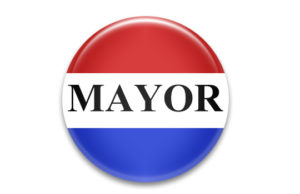
Mayors wrestle with everything from scooters to cannabis.
Every year, many— if not most— mayors give a “State of the City” address.
And each year, the National League of Cities studies what they’re saying and compiles the results into what they call a “State of The Cities” report (very creative).
The report ranks and discusses ten main topic areas that mayors are excited or worried about. It’s an interesting list and while economic development and infrastructure continue to be top priorities for cities, mayors are increasingly exhibiting leadership on newer issues—such as scooters, social media and marijuana.
Below is a list of the top 10 “movers” this year and some comments from a has-been who has been out of the game for 12 plus years.
Economic Development: Opportunity Zones
In 2019, 74 percent of state of the city speeches gave significant coverage to economic development — meaning a mayor or city manager provided concrete details on a plan, impact or goal related to growing the local economy. Of the 74 percent, 17 percent talked about opportunity zones. While some mayors are discussing what opportunity zones are and how to take advantage of them, others are moving ahead with opportunity zone policies.
Comment: Economic development has always been a hot topic, but opportunity zones are new. I think the zones are great public policy, but the powers that be missed some obvious zones (Congress Avenue, downtown Lake Worth) while blessing some areas that are already blessed.
Infrastructure: Ridesharing
Cities are becoming “smarter”, with new mobility services such as “dockless” bikes, ride sharing and scooters emerging in communities across the country. Mayors are recognizing that if you want to ditch your car in favor of a bike to get to work, you should, and now you can in many cities, towns and villages across the nation.
Comment: We never heard or ridesharing, Uber or Lyft in my day. We did know about carpooling. And bike lanes were a huge topic back in the day.
Health & Human Services: Recreational Marijuana
Communities are approving marijuana use at bars and cafes (really) and are expecting to accrue large financial benefits. From tax receipts to the diminishment of unsafe underground economies, cities are prepared to capitalize on this newly-regulated industry. Coverage of the recreational marijuana subtopic increased from two speeches in 2018 to seven speeches in 2019, an increase of 250 percent. In 2019, 46 percent of speeches significantly covered health and human services, and 10 percent of those provided concrete details regarding recreational marijuana, ranging from changing zoning codes to filing lawsuits against cannabis regulation.
Comment: Not sure we saw the legalization movement coming in the early to mid -2000s. And we thought CBD stood for Central Business District.
Energy & Environment: Solar Power
Advancing solar power is one of the many steps that cities are taking to fight climate change. Local governments are fostering solar energy growth by supplying government buildings and traffic systems with solar energy, embracing community solar power initiatives and reducing the energy burden for low-income households.
Comment: LED lights were just emerging as an option and LEED was gaining popularity. But sea level rise wasn’t on the radar screen.
Budgets & Management: Intergovernmental Relations
Cities are continuing to voice their concerns about the relationship between local and upper levels of government, particularly state overreach and fiscal constraints.
Comment: Mayors have always feared Tallahassee and Washington too. Home rule has always been a hot topic and while we would have welcomed help, we were happy if we weren’t bulldozed by mandates and wacky policy.
Housing: Blight and Elimination
In recent years, cities have implemented blight elimination measures, which include rehabilitating or demolishing vacant and abandoned properties to revitalize and strengthen neighborhoods.
Comment: Always a popular topic and focus. We did fear the elimination of Community Development Block Grants which pay for neighborhood rehab projects etc.
Public Safety: Education and Initiatives
Across the United States, more local police and fire departments are engaging with residents to increase education and awareness on public safety issues, ultimately building community trust.
Comment: A perennial. We called it community oriented policing and civic engagement.
Demographics: Civic Engagement
Mayors have consistently encouraged residents to engage in civic activities and provided their constituents with important opportunities that can impact their city’s future. In 2019, some mayors also specifically discussed plans regarding the political participation process and municipal election reform.
Comment: We were there for the hanging chads and the 2000 election so….election integrity and voting were always important concerns. We also were big on visions, charrettes, neighborhood dinners, advisory board recognition, town halls and forming neighborhood associations.
Education: School Outcomes
Both in 2018 and 2019, mayors discussed plans to achieve higher high school graduation rates. In 2019, mayors also announced school programs designed to address issues affecting student performance, such as chronic absenteeism and childhood trauma.
Comment: Education was a huge concern and focus.
Government Data & Technology: Social Media
More local governments are using social media to address pertinent issues within their communities and increase communication with their residents.
Comment: Social media didn’t exist, we didn’t even have a consolidated website when I was first elected in 2000. Technology was on our minds, we wanted online bill pay etc., and added streaming coverage of meetings but it was a simpler time. If someone said 3G to us, we assumed they meant the deli on West Atlantic. P.S. 3G’s has great pastrami.